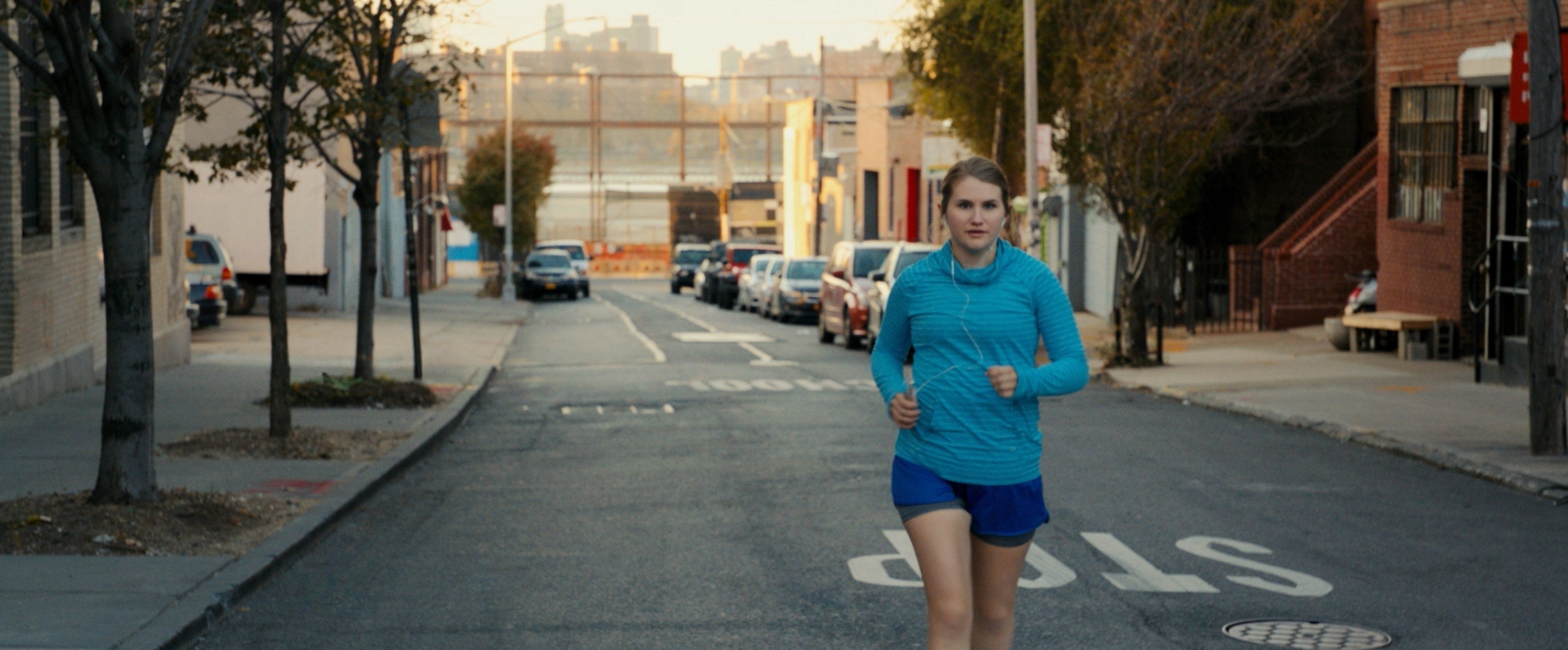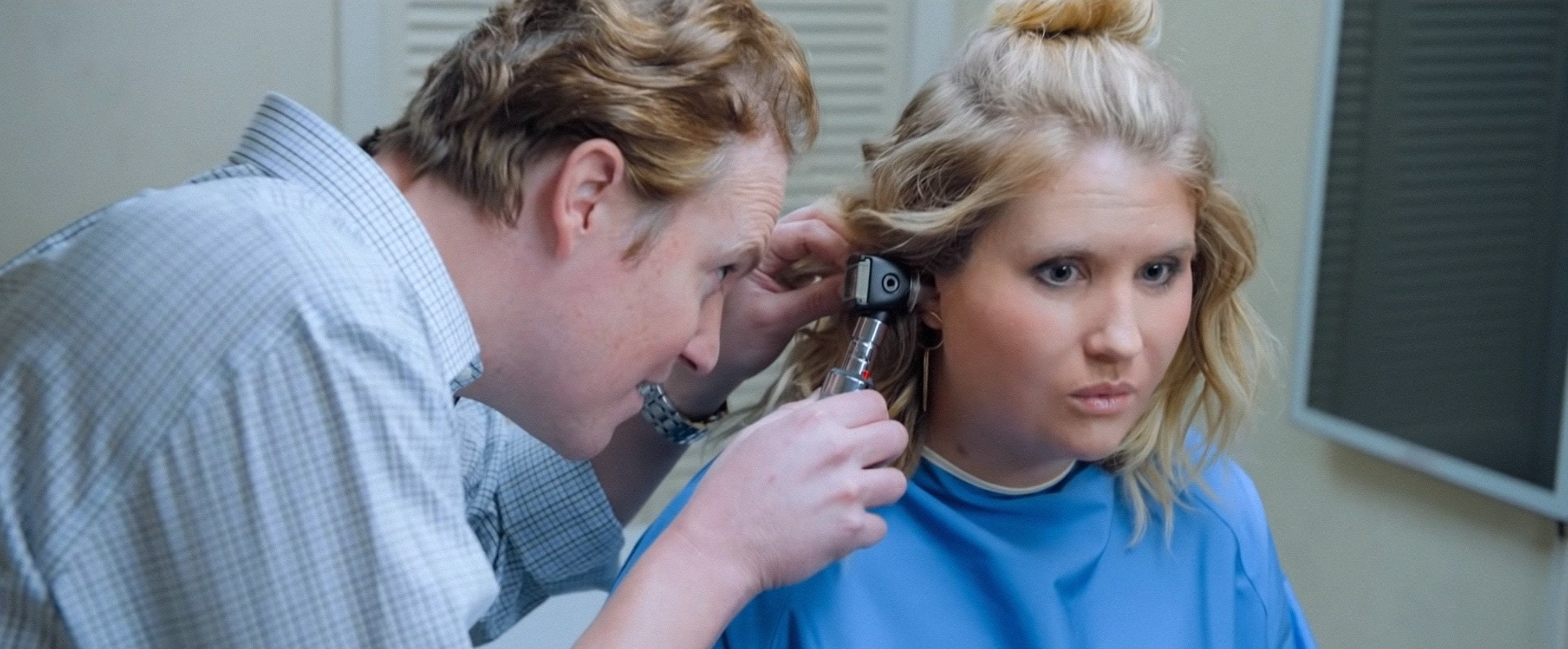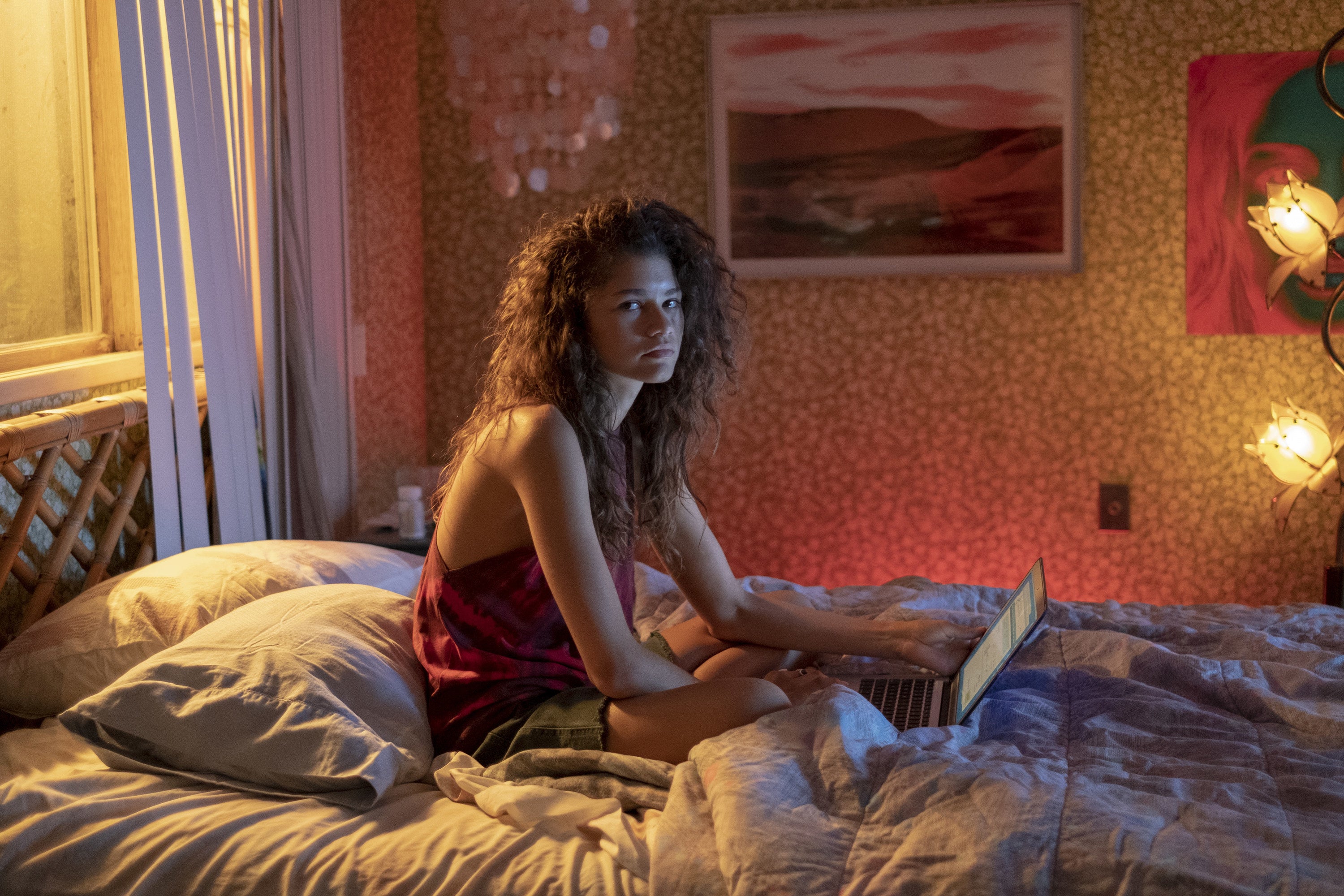
After a big breakup earlier this year — I was the one who ended things — I gave myself a lot of room to grieve in whatever ways felt good at the time. Ordering takeout for both lunch and dinner? Sure. Downing IPAs while watching women’s soccer at 10 in the morning? No problem. Draining my savings on weird funky clothing and yet another pair of clogs? You bet!!!
According to the tenets of modern pop feminism, I’m entitled to a certain amount of overindulgence because, as a hardworking woman, I’ve earned it. Everything from institutional sexism to harassment to heartbreak can supposedly be assuaged by a couple bottles of wine with a group of good girlfriends. The treacly “Treat yo self” mantra popularized on Parks and Recreation has enabled many a stressed-out woman to place that $800 Anthropologie order (you can always return most of it, right?). Life is hard and the world is on fire; maybe we deserve to indulge in some good old simple pleasures.
So what if wine is a carcinogen and the alcohol industry has actively worked to downplay the link between drinking and cancer? So what if fast fashion is built on exploitative labor and contributes to mass global pollution? So what if the concept of self-care — popularized by Audre Lorde, a black lesbian activist battling breast cancer — has been co-opted to sell us things we don’t need, things which indirectly harm others and might actually harm us in the end? We’ve earned it, ladies!
I’d like to think I don’t actively buy into the capitalist vision of self-care, even as I’ve thrown my money into its maw; at least, I don’t assume any sort of entitlement to feeling good via the accumulation of material things. More so, I just thought…fuck it.
A few months ago, drunk in the middle of the day, I impulse-bought a Juul at a bodega in downtown Manhattan. I’d been taking hits off my friends’ vapes for months, only after I’d had enough to drink that smoking became pleasurable instead of disgusting. That was the rule I’d used for myself previously with cigarettes: I could never buy my own, but if I was drunk, I could bum one or two or five. Actually owning a Juul, as much as I liked to think the vapor or whatever made them safer than my beloved Marlboro Lights, was definitely breaking the rules. But I’d reached a point where I no longer cared.
While other people were having their hot girl summers, I spent mine flirting with a sense of doom I haven’t experienced since I was a hope-starved teen. (Nihilism: It’s back in style, just like denim miniskirts!). And I’m not alone. Twitter offers a daily glut of jokes about the apocalypse; things have gotten so bad we’re begging for vaping or an asteroid or alien overlords to finally put us out of our misery. The novelist Jonathan Franzen published a (much-maligned) essay this past weekend about climate change, arguing that the oncoming disaster is impossible to mitigate and “we” can no longer pretend otherwise. ("Every day, instead of thinking about breakfast," he wrote, we all "have to think about death.") Reading recently about presidential candidate Andrew Yang’s dystopian vision of the future, I found myself dismayed, and thoroughly dragged, by Max Read’s description of a “doomer,” the archetypal internet memer who believes we’re all totally fucked: “a depressed, purposeless 20-something usually depicted smoking a cigarette and wearing a beanie.”
Okay, I’m not a doomer, but I have become somewhat fatalistic lately. With talk of another recession and the continued possibility of dying in a mass shooting or some sort of natural disaster, the scarcity mindset I’d developed as the child of a parent living paycheck to paycheck kicked back in again. Thanks to a few greedy corporations and crisis-denying national governments, climate catastrophe seems inevitable — no matter what personal choices I make about things like food or travel or children.
So why bother saving for the future if there isn’t even going to be a future? Why bother being kind to my body by taking it easy on the beer and potato skins when all the crap I consume might not catch up with me by the time that not-future comes to pass? No matter how I treated myself — and no matter what infinitesimal steps I took to be a better human citizen — we’d all end up in the same place in the end.
For a while during my “fuck it” summer, it felt great to be a mess, if only because of its implicit rejection of corporatized self-care’s evil twin: self-optimization. Since diets have become passé, we’ve entered a new era defined by “wellness,” but women are still expected to meet Eurocentric and patriarchal beauty standards — only, unlike with dieting, we’re now supposed to feel good about attempting to contort ourselves into socially acceptable bodies.
Fuck other people’s narrow ideas about the only right ways to live a good and happy life.
“Wellness” conjures images of Gwyneth Paltrow peddling hundreds of dollars’ worth of Goop vitamins and oils and crystals and juices to customers who, because they are not wealthy celebrities, will never look like Gwyneth Paltrow. Organic vegetables and private Pilates instructors are the provinces of rich people who have the time and money to optimize their bodies as if it’s their job (because it is). Fuck wellness! I thought, ordering chips and queso for the third time in a week. Fuck other people’s narrow ideas about the only right ways to live a good and happy life.
But was my life really better, or happier? I loved taking shots with my sister at my favorite dive bar, bonding in a way we sometimes struggle to when sober. But I hated that by the time we got home I was sobbing on the couch about our fraught relationship with our mother, some deep dark part of me ripped open and exposed to the unforgiving light. I loved the dopamine rush of confirming yet another online shopping order, but I hated having to return half the crap once it piled up in my bedroom. I hated hangovers, mountains of takeout containers, and the point at which my Juul would stop giving me a stream of little highs and instead just start making me sick.

Last weekend, I took myself on a date to the movies. I saw Brittany Runs a Marathon, which is the exact kind of movie I’ve been seeking out lately: funny, uplifting, and you know going in exactly what you’re getting. Keep your twist endings, Quentin Tarantino! I’ll watch the movie where the ending is literally spoiled by the film title.
Paul Downs Colaizzo’s indie movie, which won the Audience Award in the US Drama category at Sundance, stars Jillian Bell as the titular Brittany, a goofy twentysomething in a major life rut. A doctor tells her she has an unhealthy BMI (proven to be a bogus measure of a person’s health) and that she needs to lose 50 pounds. This leads Brittany — and Bell herself — to attempt to shed the weight of a “small Siberian husky” over the next year, at the end of which Brittany plans to run the New York City Marathon.
A movie about a woman trying to find fulfillment through weight loss sounds pretty out of step with our current cultural moment, when fat acceptance and body positivity have been gaining significant ground. Kate Browne in Runner’s World argues that the movie functions as “fitspo” by conveying to viewers that if you lose weight, you, too, can achieve your dreams. “The story we’re too often told about fatness and running,” she wrote, “is that body size is an obstacle to overcome in our quest for glory.” Madison Malone Kircher, in a piece for Vulture, made similar points: “In Brittany Runs a Marathon, being fat is portrayed as a starting point instead of just a state of being.”
I, too, would have preferred a movie in which Brittany ran a marathon after gaining back all the weight she initially lost while training — proving to herself, and to viewers, that she could do remarkable things at any size. Still, I think the film does complicate more straightforward and more explicitly anti-fat weight loss narratives in popular culture by making clear that personal fulfillment and a small waist aren’t inextricably intertwined.
Soon before she’s set to run her first marathon (spoilers ahead), Brittany pushes herself too hard in her attempt to lose her final 10 pounds; she deprives herself of food and ends up in the hospital with a stress fracture. She has to miss the race. While recovering, she’s much thinner but more miserable than ever. In the film’s cringiest scene, Brittany gets drunk and heckles a fat woman at her brother-in-law’s birthday party, refusing to believe that the woman’s “average” size partner could actually love and desire a fat person. At other moments, she makes jealous assumptions about a (thin) neighbor she doesn’t actually know; she begrudges a married friend his happy domesticity with his husband and children. The film suggests that Brittany’s main problem has never been her weight — it’s that she’s convinced all her woes have nothing to do with her own actions and that other people, in turn, don’t deserve their happiness.

At the end of the movie, when Brittany signs up for the marathon again the next year and actually makes it to the race — cheered on by friends she’d previously spurned — I cried. I cried because it was, yes, inspirational, but I was also moved by the way the story managed to explore personal autonomy and desire in a self-improvement narrative without discounting the significant role played by larger systemic forces.
No, Brittany shouldn’t have to lose weight to be treated with respect — but the material reality of her life is that, when she’s thinner, she’s actually “treated like a woman,” as she tells her soon-to-be boyfriend: People smile at her; they hold the door for her on the subway. No, it isn’t fair that the fancy gym she tries to join when she first decides to lose weight is cost prohibitive to so many people — but that doesn’t discount the fact that running, and other ways of moving one’s body, are completely free.
I cried because I’ve long resented all the pressure I feel to work out and eat “well” and drink less and sleep more. So much of that pressure comes from a world hellbent on optimizing our bodies and brains for workplace efficiency, for social acceptance, for conventional beauty standards, for “normalcy.” It’s pressure designed to make us believe the world will become less of a hellscape through mere personal effort, rather than structural change.
But what if we don’t make those choices (just) to make ourselves more palatable to the world around us? Yes, living “well” — if we’re financially and physically able — benefits The Man. That doesn’t change the fact that treating our bodies with respect and care might benefit us too.
When I first thought about quitting drinking, about a month ago, I read Sarah Hepola’s 2015 recovery memoir, Blackout: Remembering the Things I Drank to Forget. I sobbed through the last 50 pages. (Yes, I’ve been crying a lot lately.) She talks about how, even after she got sober, she still wasn’t taking care of herself: lots of takeout, not a lot of making the bed or hanging up her laundry.
I told myself this was OK, because our society was beyond warped in its expectations of women, who were tsunamied by messages of self-improvement, from teeth whiteners to self-tanners … I wanted to kick the whole world in the nuts and live the rest of my years in sweatpants that smelled vaguely like salami, because who really cares?
But then, after a while, Hepola realized: She cared. She realized she didn’t need to make her body and home feel and look better to please men, or because it was what she was “supposed” to do. “I should take care of myself because it made me happy," she wrote.
After finishing the book, I wondered if, angry at the propagandist sham of American individualism and bootstraps meritocracy, I’d course-corrected a little too hard — giving up on trying to improve myself or the world around me.

My nihilism was both political and personal. Politically, I’d become Chidi, the philosophy scholar on The Good Place, who ends up in Hell because of his ethical indecision. At one point, after grasping so desperately for moral purity and failing to find it, he gives up. “The world is empty,” he yells. “There is no point to anything. And you’re just gonna die. So do whatever!” Personally, I saw myself as Euphoria’s Rue (minus the hard drug-taking), who returns to her life of debauchery after getting clean in rehab because she doesn’t see the point in trying to get better. “The world’s coming to an end,” she says in the first episode, “and I haven’t even finished high school yet.”
It’s a lot easier to believe that you can’t do much to improve your moods, your relationships, and the way your body feels while simultaneously believing you can’t do much to improve those things for other people, either. Abdicating that sense of any responsibility let me avoid a deeper, darker worry: that prioritizing the self is, by nature, saying to hell with everyone else.
My obsession with that particular quandary led me to Trisha Low’s new book-length essay, Socialist Realism, in which she attempts to reconcile her desire for the comforts of love and home with her desire for a socialist utopia. Is it even possible to pursue personal happiness and fulfillment while prioritizing The Greater Good at the same time?
“Home,” she writes. “It’s just something to contain our misplaced desires for a better world. How can we willingly long for that?” Her work is built upon that of her teacher, the academic José Esteban Muñoz, who famously theorized that queerness is, by its very nature, not-yet-here — “that thing that lets us feel that this world is not enough.”
In Megan Milks’s review of Socialist Realism for Bookforum, she notes that a decade ago “many queers were enamored with the alluring radicality of queer negativity” — think Lee Edelman’s 2004 polemic No Future, about the queer death drive — but “in the Trump era such grandiose nihilism seems puerile.”
I loved Low’s book for its messiness, its sense of struggle — a perfect depiction of the constant tugging I feel within myself every day, between my desire to deal with the realities of my own life and my desire to think on bigger, more ambitious scales. “Whatever,” Low eventually concludes. “You can make utopia out of almost anything.”
Since last month, I’ve stopped consuming alcohol (for now, though maybe also for longer). I threw away my Juul, then got jealous that I didn’t get rid of it more dramatically when I saw somebody smash theirs with a hammer on Instagram. Even King Princess, the Gen Z queen of Juuls, recently quit — a harbinger of change if I’ve ever seen one.
I’m trying to whittle away at my nihilism (both the personal and the political) in other small ways. I signed up for a trial at a rental clothing company, with the hopes that I’ll spend less money on shopping and contribute less waste. I’ve stopped eating beef, hopefully en route to full-fledged vegetarianism. And I joined a powerlifting gym after my friend Katie, who is basically a lifting influencer, extolled its many virtues. I’m hoping the sport’s focus on strength and power, rather than weight loss, will help me stop punishing my body for the way it looks and start celebrating it for what it can do.
I’ve had these little bursts of self-improvement projects before, but in the past I’ve always gotten bored and given up eventually. I’d start drinking again. I’d order a bunch of crap I didn’t need from companies that mistreat their workers and actively make the world worse. Whatever, who cares, nothing matters.
Just last week I caved and ordered six different white T-shirts and a $200 pair of boots. (“Basics!” I told myself. “Just the basics!”) I know I'm still going to have nights where I eat only popcorn for dinner and watch six straight episodes of Love Island and bum hits from my friends’ Juuls. I think what’s most important is that I’m at least trying to train myself to rely on more than just instant gratification. To have faith that, if I’m lucky, there’s a lot more life I’ve yet to live.
Critics of Franzen’s New Yorker piece on the climate apocalypse pointed out that the author’s climate projections are seriously flawed and his conclusions perhaps even more so. After taking swipes at everyone, from the evil science-deniers on the right to the overly optimistic peddlers of the Green New Deal on the left, Franzen sees hopeful futures for community gardens and CSA programs, but not much else.
“If your hope for the future depends on a wildly optimistic scenario,” he wrote, “what will you do ten years from now, when the scenario becomes unworkable even in theory? Give up on the planet entirely?”
What a patronizing way to address anyone who dares to dream. Teenage climate activist Greta Thunberg hasn’t documented her climate depression or dared adults to consider the impact of their personal choices just to piss off a bunch of man-baby conservatives. As a young person, she’s more than justified in fearing for her future, but despite her anger and her sadness — because of her anger and her sadness — she still believes in something better. Why bother even trying otherwise?
Yes, living “well” — if we’re financially and physically able — benefits The Man. That doesn’t change the fact that treating our bodies with respect and care might benefit us too.
Corrupt corporations and governments do hold the most blame, and the most significant obligations, when it comes to righting our course. But there is no easier way to shirk consumer responsibility — whether you’re eating beef, or flying a lot, or holding onto that unholy Amazon Prime subscription — than by self-soothing with the leftist adage that “there’s no ethical consumption under capitalism.”
As Charlotte Shane recently wrote in a piece about Jonathan Safran Foer’s We Are the Weather (yet another collection of Big Climate Thoughts by yet another underqualified white guy), holding institutions accountable “can’t be a ploy to deflect attention from our own culpability … No matter how otherwise constrained our circumstances, we can always choose each other, choose solidarity, choose effort. Every time we do, we’re making headway toward a new habit, a self-reinforcing orientation that alters the fabric of who we are and how we live.”
Is there anything in this world harder than trying to be both happy and good?
I’ve been listening to Lana Del Rey’s Norman Fucking Rockwell on repeat since the album dropped, which has put me in the perfect mood for my sad girl fall. But as much as Lana sings her beautiful, dreamy way through the depressing fog that is modern living, she still ends the album on somewhat of a high note. “Hope is a dangerous thing for a woman like me to have,” she croons on the very last song. “But I have it.”
May we all, Lana. May we all. ●
